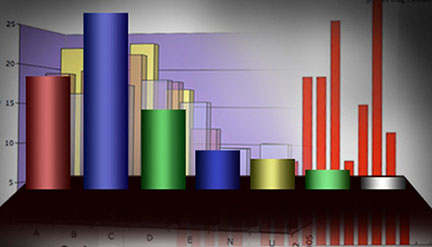The last month, the elections and the formation of a government have been the focus of political evolutions. Discussions after discussions took place in the media by scientists and politicians, while polls were used to capture the opinions of citizens. But what is a poll?
Etymologically, the word poll is complex and comes from the words municipality and purpose, where the first means people and the second I observe carefully. That is, it aims to capture the opinion of the social body on political, economic and social issues. The poll as a political survey has positive elements, which are the possibility of analysis of the social body by political scientists and therefore is a way of participation and expression of citizens for political becoming. Its disadvantages are the questions of general content, the lack of a satisfactory range of answers and in some cases the not understanding formulation of the questions.
At this point, I consider it is necessary to make some clarifications, in order to resolve the misunderstandings inherent in the respondents about the implementation of the political polls. Firstly, I will address to the questions for which I have three things to point out:
- The questions are created depending on the objectives of the research, which are set by the client. Therefore, if the client is a political party, the questions may contain party expediencies.
- The questions are asked in order to record the current political opinion of the citizens on political issues and persons.
- Many times the respondents consider that the questions, which is asked, in the questionnaires do not correspond to reality but are guided either by parties or by the media. It should be understood that the questions are based on official political data and not with unofficial interpretations of political events (which are often correct but unofficial), as otherwise there will be criminal sanctions for polling companies.
I will continue with the issue of answers. A large percentage of respondents express their dissatisfaction with the answers given to the questionnaires, as they do not agree with any of them. Although I agree to some extent, my objection to this is that many times the respondents are covered by the answers, but not in the way they wish. Also, the majority of them often answer I don ton know/I do not Answer to open-ended questions.
Another issue I would like to raise is the lack of conduct of the respondents. Undoubtedly, the polls are carried out with the non-profit and kind participation of the citizens. However, if they agree to take part in the poll, they should take into account that the people they are talking to, they are working and trying to get the relevant answers in an objective way. For this reason, they should be patient, until the questionnaire is over, to listen to the explanations of the researchers and not to express their opinion selectively.
Finally, citizens should not feel evaluated or controlled when responding to a political research. The aim is to capture the political opinion and not to cross-check political beliefs with specific people. For this reason, the descriptive questions (age, income, etc.) are grouped in order to make the political analysis.
In conclusion, the poll, like all political methodological tools, has advantages and disadvantages. The way we respond, it gives it validity and credibility. This applies to both political scientists and participants.
This article contains copyright. Reproduction of all or part of this article may be done with the consent of the author or with reference to the website www.marialykousi.gr. The first publication was made in “Echo of Faliro” in June 2012.
